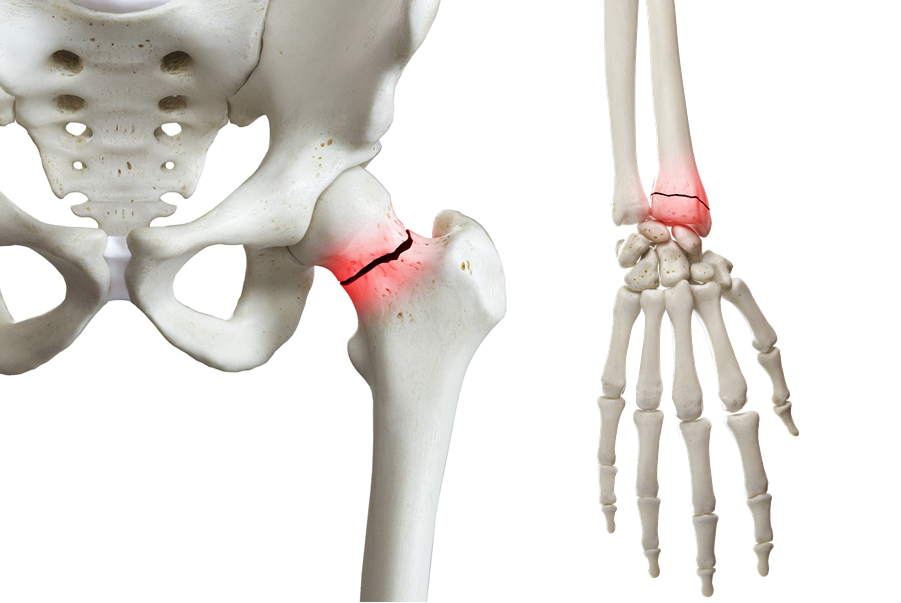
More than 50 per cent of the world’s hip fractures are expected of occur in the Asia Pacific by the year 20250, a region which is currently home to 4.5 billion people. An overwhelming 319 million people aged 50 years and over from the Asia Pacific are projected to be at high risk of osteoporotic facture over the next two decades.
In a strong effort to stem the tide, and to promote quality care in osteoporosis, the Asia Pacific Consortium on Osteoporosis (APCO) has launched a world-first, interactive, educational osteoporosis resource – the APCO Health Care Professional (HCP) Peer to Peer Educational Modules – today, to mark World Osteoporosis Day (Wednesday, October 20).
The survival of those who sustain an osteoporotic fragility fracture is significantly compromised for up to six years, with patients facing twice the risk of death within the first year. Furthermore, a prior fracture at any site doubles a person’s risk of refracture. Yet despite these alarming statistics, more than 80 per cent of fragility fracture patients are neither assessed, nor treated, placing a substantial, but importantly, preventable burden on already strained healthcare systems.
The APCO HCP Peer to Peer Education Modules will offer healthcare professionals a comprehensive, evidence-based resource encouraging widescale implementation of the minimum clinical standards of care for osteoporosis advocated in The APCO Framework. This will enable the delivery of best practice osteoporosis care throughout the Asia Pacific – the world’s fastest ageing region.
According to APCO Chairperson, and Director of the Osteoporosis and Bone Metabolism Unit, Singapore General Hospital, Dr Manju Chandran, Singapore, there are significant inconsistencies in clinical practice guidelines in the Asia Pacific for the management and prevention of osteoporosis and fragility fractures. These guidelines vary extensively in scope and recommendations. There is also a lack of information available on adherence to national guidelines in daily clinical practice.
“It is to address this care gap, that APCO has developed an interactive, 17-module educational series today, to arm osteoporosis champions in the Asia Pacific, with information, supporting data, topical literature summaries, and best practice examples that support and emphasise each of The APCO Framework’s 16 minimum clinical standards and emerging themes in osteoporosis care.
“Increasing awareness and education among healthcare professionals in the Asia Pacific is imperative to bringing change to the real-world clinical practice of osteoporosis care and fracture prevention,” said Dr Chandran.
In 2012, in Australia alone, the total costs of osteoporosis and osteopenia among Australians aged over 50 was AUD 2.75 billion – a figure which is projected to increase to AUD 3.84 billion by next year, 2022.
“In the over 50’s population, osteoporosis and osteopenia (low bone density) affect more than 66 per cent of adults, accounting for 4.74 million Australians, and resulting in 140,822 fractures. By 2022, an estimated 6.2 million Australians over 50 years of age will have osteoporosis or osteopenia, a 31 per cent increase from 2012,” Mr Lyubomirsky said.
“Given the anticipated exponential growth in fragility fractures due to the Asia Pacific region’s rapidly ageing population, mass urbanisation and our increasingly sedentary lifestyles, we must act now.”
Osteoporosis is vastly under-diagnosed and under-treated. Disturbingly, millions of people worldwide at high risk of fracture remain unaware of this underlying, silent disease. Championed by the International Osteoporosis Foundation (IOF), World Osteoporosis Day is dedicated to raising global awareness of the importance of prevention, diagnosis and treatment of osteoporosis and musculoskeletal diseases.
“This World Osteoporosis Day, we encourage healthcare providers, policy makers, patients, members of the public, and the media on a global, regional and national stage, to recognise the monumental human and socio-economic burden of osteoporosis, and the severe impact of fractures on a patient’s independence and quality of life,” IOF Chief Executive Officer, and APCO Executive Committee member, Dr Philippe Halbout, Switzerland said.
“Today’s launch of the APCO Education Modules demonstrates the organisation’s ongoing commitment to achieving greater consistency in national and regional clinical practice guidelines for the screening, diagnosis, and management of osteoporosis in the Asia Pacific.”
To request access to The APCO Education Modules, head to: apcobonehealth.org/apco-education-modules.
To learn more, visit www.apcobonehealth.org or follow APCO on LinkedIn: asia-pacific-consortium-on-osteoporosis.
